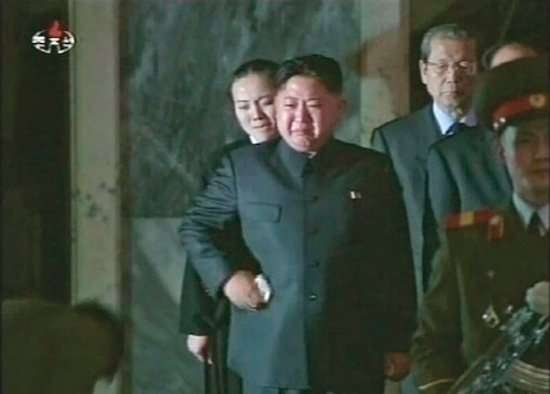Tears of the Son
Sincere sorrow at the death of North Korean dictator Kim Jong-il.

On December 28, North Koreans bid a formal farewell to Kim Jong-il with a massive, regimented display of ritualized grief. Photos and video of bawling mourners flooded the state-run media, usually the only source of images from inside the Hermit Kingdom. Western observers were intrigued: Was all this hysteria over the death of one of the world's worst totalitarians the product of fear, social pressure, or—perhaps most confusing of all—sincere grief expressed according to Korean tradition?
Amid the uniform sobbing, one person's sadness looked less theatrical. At his father's funeral, the newly dubbed Supreme Leader Kim Jong-un had the ugly, blotchy face of someone who has truly been crying. And why not? Like his father before him, Kim, who is about 27 years old, has inherited dictatorial control over a bleak, starving nation whose all-powerful military may or may not bless his rule.
According to Kim Jong-il's former sushi chef, Kim Jong-un was selected over his older siblings because the dictator said "that boy is like me." Which means there is little hope that the concentration camps will close, the Orwellian surveillance state will end, or that Kim Jong-un will be worth mourning with any sincerity when he dies.


Show Comments (80)